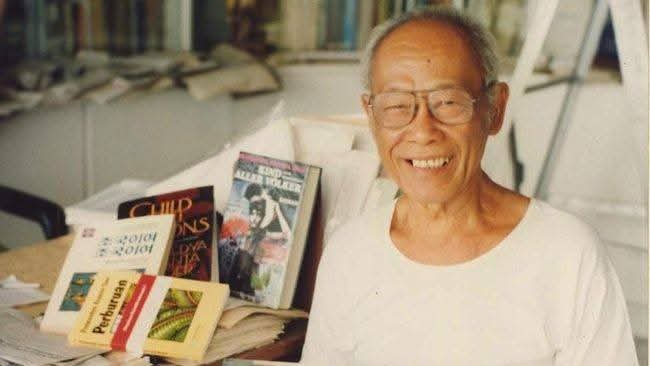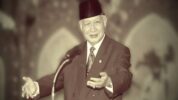100th Anniversary of Pramoedya Ananta Toer: Amnesty Calls for Freedom of Expression and Release of All Prisoners of Conscience
JAKARTA, RAKYAT NEWS – “100 Years of Pramoedya Ananta Toer: The State Must Ensure Freedom of Expression and Thought, Free All Prisoners of Conscience in Indonesia”
The 100th anniversary of Pramoedya Ananta Toer’s birth on February 6, 2025, serves as a crucial moment for the nation to ensure that citizens are no longer imprisoned for peacefully expressing themselves or creating art, as Pram himself once experienced.
From a human rights perspective, Pramoedya symbolizes the freedom to think, speak, express opinions, and create. His works were banned by the government, and he was incarcerated repeatedly, including on the remote island of Buru.
“Pram spent half of his life in prison and the other half living with an unjust negative stigma. His freedom was not a gift from the state, but a result of the pressure from many who advocated for his release,” said Usman Hamid, Executive Director of Amnesty International Indonesia.
“Pram’s struggle was a fight for human dignity and the preservation of freedom of thought and expression, which was violently taken away by the state,” Usman continued.
“Young people admire and draw inspiration from Pram’s work. They must continue his fight by speaking out against the injustices committed by the state. Pram’s freedom was stolen by the government, highlighting how powerful writing is as an expression of fundamental freedoms that should be protected by the state,” Usman added.
Amnesty International was one of the international organizations that campaigned for Pram’s release during his time on Buru Island.
One of the campaigns involved listing Pramoedya as a “prisoner of conscience” in the Amnesty International newsletter titled Prisoner of Conscience from September 12-19, 1972.
“The newsletter featured Pram’s profile as a prisoner of conscience, alongside others imprisoned merely for peacefully expressing their views,” said Usman.
The newsletter detailed the cases of Pram and other prisoners of conscience from countries including South Africa, Spain, Taiwan, Cuba, Tanzania, the Czech Republic, Paraguay, Namibia, Turkey, and Hungary.
In 1972, Amnesty sent a letter to its global movement members, making Pram’s case a focal point of their campaign. The organization mobilized hundreds of thousands of its members around the world to pressure the Indonesian government to free Pramoedya. He was eventually released in 1979.
During his detention on Buru Island, Pram even faced the risk of being executed without trial. A fellow political prisoner informed Pram’s family about the imminent threat, prompting them to contact Amnesty International. Thanks to the intervention, Pram survived the extrajudicial execution attempt.
In a media interview, Pram’s daughter, Astuti Ananta Toer, shared how Basuki Effendy, a fellow political prisoner, warned her that her father was at risk of being killed and urged her to contact Amnesty International immediately.
Beyond imprisonment, Pram was also forbidden to write while on Buru Island, at least until 1973. Access to pens, pencils, and paper was denied. Amnesty International sent a typewriter to Pram on the island so he could continue his work.
“Amnesty learned that the first typewriter, which had been sent by French philosopher Jean-Paul Sartre, broke down. Consequently, Amnesty sent a replacement, which was delivered to Pram through an International Committee of the Red Cross (ICRC) officer,” Usman explained.
At the time, only the ICRC had access to Buru Island.
As we mark the centenary of Pram’s birth, it is vital for the state to free all individuals imprisoned solely for peaceful expression, including those charged under the Electronic Information and Transactions Law (ITE), the Blasphemy Law, the Treason Law, or the Pornography Law.
According to Amnesty International Indonesia data, from August 2019 to April 2024, there were 128 prisoners of conscience (PoC) across 82 cases in Indonesia.
“Only by releasing all prisoners of conscience can the government truly show that it has learned from its dark past. We will continue to advocate for the release of prisoners of conscience, just as we did for Pram,” Usman concluded.
“To echo Pram’s message, the current generation must act justly in their minds and continue to write, so they are never forgotten by society or history. Being just in thought and actively writing to uphold human rights in Indonesia is essential,” Usman emphasized. (Uki Ruknuddin)



























Tinggalkan Balasan